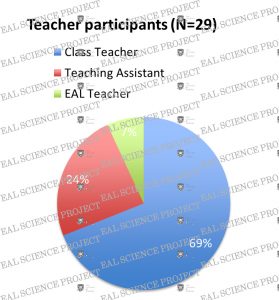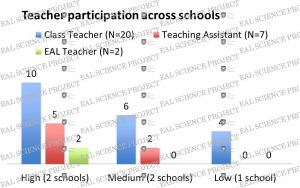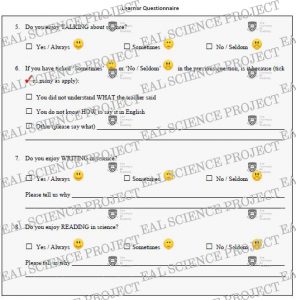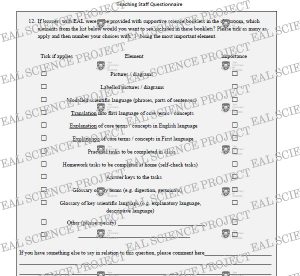| Overview:
In 2009 the Department of Education announced that from the academic year 2010 Key Stage 2 tests in science were to be discontinued and replaced by a sample test administered to approximately 5% of the entire Y6 primary school cohort (DfE, 2011), thus requiring learners to demonstrate their proficiency in literacy and mathematics, but not in science. Such subject ‘discrimination’ seems almost certainly to shift the importance of science acquisition at primary school level to the periphery. However, at secondary school level, when pupils are required to take GCSE exams, it becomes apparent that English non-native speaking learners who choose to take their exam in science, significantly underperform their English speaking peers (SCC, 2013). This evidence demonstrates that for one reason or another these learners seem not to be getting adequate support for learning science at school and that probably they come from primary schools under-prepared for science instruction at the secondary level. This project examines key problems and challenges that teachers and learners face in this unique learning context, and proposes ways in which these challenges can be narrowed down or overcome. Specific emphasis is placed on the following issues: (i) availability of teaching materials suitable for non-native English speaking learners |
Participants:
1 school –> 0 – 30% EAL Focus on science lessons |
Instruments:
Interview and questionnaire data (teacher, learner and parent) |



